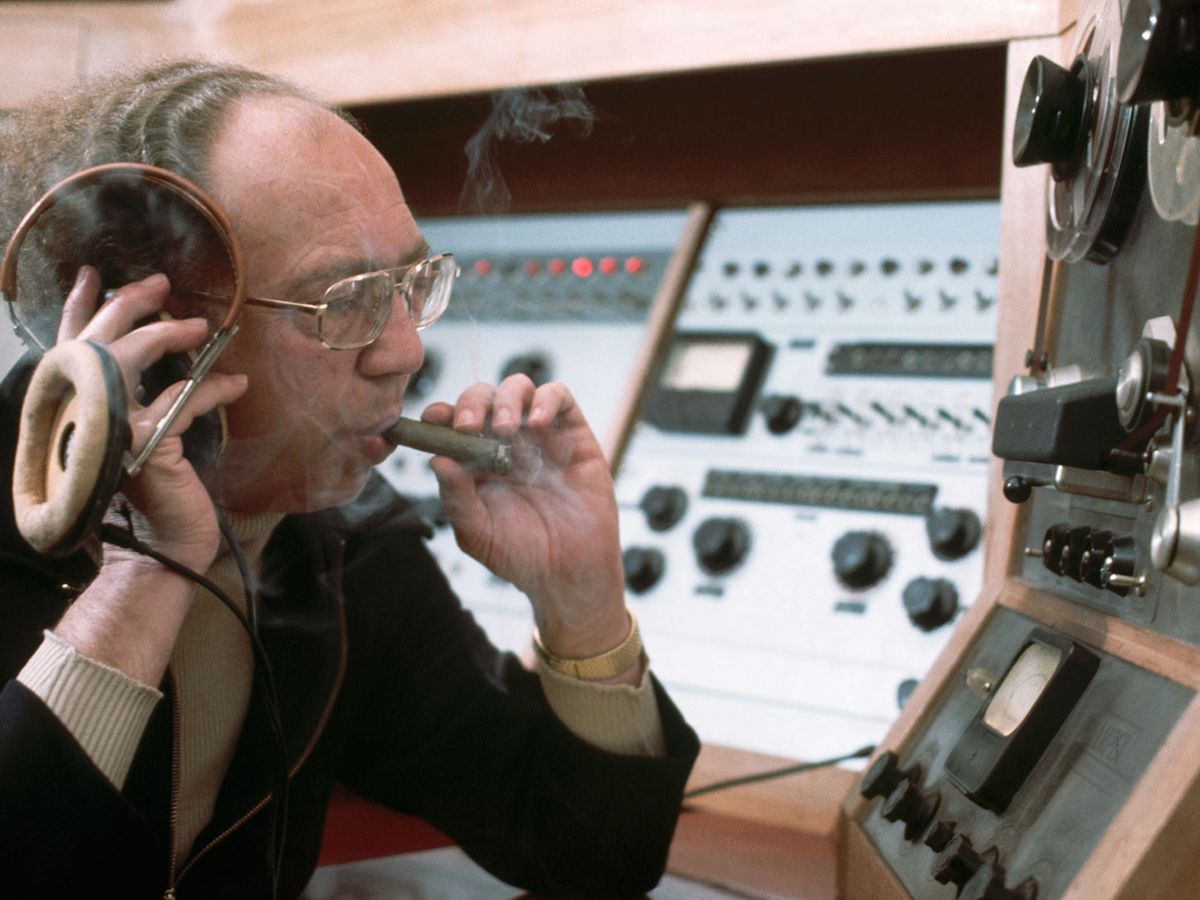THE INSTITUTEPrivate detective Harold “Hal” Lipset [above] took on thousands of cases and earned a reputation for inventing ingenious listening devices. He was also an advocate for public regulation of eavesdropping.
Lipset’s career was complicated. He took on controversial clients and testified as an expert witness in U.S. court cases. He also served many of his clients in unconventional ways, like breaking into hotel rooms to catch cheating spouses and pursuing suspected jewel thieves across Europe.
He died 20 years ago, but his private detective agency is still in business 70 years later.
SECRET RECORDINGS
After serving as a U.S. military police officer during World War II, Lipset moved in 1947 to San Francisco and opened a private detective agency.
He began collaborating with the city’s leading law firms on pretrial investigations. He initially used a wire recorder to tape conversations, but the introduction of transistors in the 1950s inspired him to seek help with building much smaller listening devices, which eventually made him famous. He worked with electronics expert Ralph Bertsche, who showed him how to design devices using transistors.
According to an obituary in TheNew York Times, Lipset once won over a skeptical prospective client by playing a recording of a previous conversation he had with the client while sitting naked in a steam room. The bug had been hidden in a bar of soap.
ETHICAL CONSIDERATIONS
Whether strapped to his chest or embedded in soap, miniature listening devices were crucial to Lipset’s work. He often used them to obtain information that could discredit his client’s opponents in court. He was wary of wiretapping’s impact on privacy rights, however. He criticized its misuse in a section he contributed to the 1959 book The Eavesdroppers, written by Philadelphia prosecutor Samuel Dash. In 1960 Lipset wrote an article, “The Wiretapping-Eavesdropping Problem,” for the Minnesota Law Review, in which he criticized the practice of spying on private citizens with hidden recording devices.
In 1986 he testified about that practice before the U.S. Senate’s constitutional rights subcommittee. He shocked the committee by demonstrating a listening device small enough to fit in an olive. The technology was impractical—the antenna in the toothpick had limited range, and the microphone in the olive would fail if it got wet—however, the device became a focal point for debate about protecting people’s privacy.
That year, Congress passed a law banning all wiretapping and recordings by the federal government without a court order. There was an exception, though, if one party to the conversation consented—which suited Lipset’s needs. Soon after the law was implemented, several states, including his home state of California, banned private recordings unless both parties agreed.
LIPSET’S LEGACY
Lipset was an investigator for the defense team in many controversial high-profile cases. In one, political activist Angela Davis was tried in federal court for conspiracy involving the 1970 armed takeover of a courtroom in Marin County, Calif., in which four people were killed. She was acquitted in 1972. Another case involved Jim Jones, leader of the People’s Temple, a religious movement that came under fire in 1978 when Jones and more than 900 followers died in a mass murder/suicide at the group’s remote Jonestown settlement in Guyana.
Lipset was called in to investigate U.S. president Richard Nixon’s role in the 1972 break-in and subsequent cover-up at the Democratic National Committee’s offices in the Watergate complex, in Washington, D.C. Dash, who was then the Senate’s Watergate committee counsel, hired Lipset in 1973 as his chief investigator. After Nixon’s legal team leaked word of Lipset’s past conviction for a minor eavesdropping offense, however, he resigned.
His colorful career was the inspiration for director Francis Ford Coppola’s Harry Caul character of Harry, played by Gene Hackman in the 1974 film The Conversation.
Lipset trained several detectives who eventually set up their own agencies. One was Patricia Holt, a former philosophy professor, who wrote a 1995 biography about Lipset, The Bug in the Martini Olive.
He died on 11 December 1997 at the age of 78. To learn more about his life and career, visit the Engineering and Technology History Wiki.
This article was written with the assistance of the IEEE History Center, which is partially funded by donations to the IEEE Foundation.
